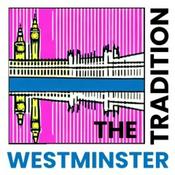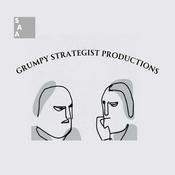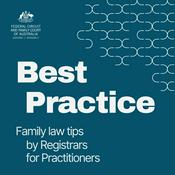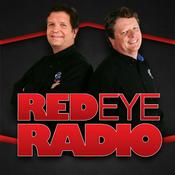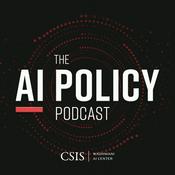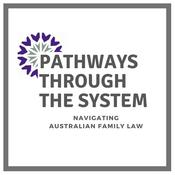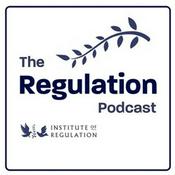35 episodes
- This panel discussion was recorded at the Department of Health’s LGBTIQA+ Champion Day in September 2025.
On the panel, host Dorian Broomhall – Culture and Wellbeing, Department of Health, was joined by:
Rose Boccalatte, Pharmacy Technician - Launceston General Hospital
Rodney Croome, advocate and spokesperson - Equality Tasmania
Dr Ruby Grant, Senior Research Fellow - La Trobe University
Ellie Hickey, Policy and Project Support Officer - Public Health Services
Olivia Hogarth, CEO - Working It Out
Katie Kelly, Project Manager Sex and Gender Reform - Public Health Services
In this candid discussion, the panellists explore the behavioural shifts that must occur alongside shifts in policy and systems. The panel discusses when it is and isn't constructive to challenge antiquated opinions. The panel also share personal stories, both heartfelt and humourous. - Boundaryless careers embrace flexibility and mobility across different roles, sectors, or professions. These careers require adaptability and the ability to apply skills in diverse contexts. Individuals with boundaryless careers may move between organisations or roles, applying their expertise in new and varied environments. This model often overlaps with protean careers, as both value flexibility, but boundaryless careers place greater emphasis on external movement and varied experiences. Success is measured by adaptability, diverse experiences and skill transferability, including the ability to thrive in different roles, industries and sectors.
We explore this model though interviews with:
Duncan McKenzie, Director Pharmacy Projects - Statewide Hospital Pharmacy
Giovanni Mandarano - Deputy Chief Medical Imaging Technologist, Hospitals South
Michaela Young - Senior Clinical Psychologist Continuing Care Stream - Mental Health Services South
Rod Manning, former Chief Radiographer - Hospitals South
Find more information about all of the career models we discuss in this series by visiting the Allied Health Workforce Development Framework SharePoint. There you’ll find practical advice for each model, as well as a quiz that can help you match your own career with one of the five models. - Kaleidoscope careers represent a flexible approach to balancing evolving life and work priorities, empowering individuals to shift focus as personal and professional circumstances change. Success is measured by fulfillment, well-being and flexibility. This model embraces adaptability and alignment with personal values, whether one seeks new challenges, work-life balance, or broader impact. Unlike a fixed career path, a kaleidoscope career can involve growth within a current role or transitions to new opportunities, all while adjusting to life's changing demands.
We explore this model though interviews with:
Joanne Gross, Senior Specialist Pharmacist, Quality Use of Medicines – Clinical Quality, Regulation and Accreditation.
Vanessa Bakker, Senior Psychologist - Launceston General Hospita;
Find more information about all of the career models we discuss in this series by visiting the Allied Health Workforce Development Framework SharePoint. There you’ll find practical advice for each model, as well as a quiz that can help you match your own career with one of the five models. - Career development doesn’t always require changing jobs or titles. A career in place focuses on growth within your current role or organisation. Here, progress is about evolving how you approach your work - expanding responsibilities, enhancing skills, and continuously improving within your existing job. Success is measured by personal growth and how you can innovate and contribute meaningfully in your current role. This model often overlaps with traditional careers, particularly for those who seek to become specialists or leaders without necessarily seeking promotion or new titles.
We explore this model though interviews with:
Amber Paske, Senior Occupational Therapist - Mersey Community Hospital
Indigo Bates, Senior Occupational Therapist - Launceston General Hospital
Find more information about all of the career models we discuss in this series by visiting the Allied Health Workforce Development Framework SharePoint. There you’ll find practical advice for each model, as well as a quiz that can help you match your own career with one of the five models. - A traditional, linear career path is characterised by clear, upward progression through a series of roles within an organisation or profession. This path typically involves moving up the corporate ladder, with success measured by external markers such as promotions and new titles. For those who seek to become experts in their field, traditional careers offer a structured route to deepen knowledge, refine skills, and take on leadership roles. Stability and long-term commitment are key features of this model.
We explore this model though interviews with:
Amy Turner, Senior Allied Health Stroke Coordinator and Deputy Manager Speech Pathology - North West Regional Hospital
Emily Farquhar, Physiotherapy Clinical Lead and Outpatient Rehabilitation Team Leader - Launceston General Hospital
Find more information about all of the career models we discuss in this series by visiting the Allied Health Workforce Development Framework SharePoint. There you’ll find practical advice for each model, as well as a quiz that can help you match your own career with one of the five models.
More Government podcasts
Trending Government podcasts
About One Health Podcast
Hear the winding paths people from across the Department of Health in lutruwita / Tasmania have taken to reach where they are today. We'll hear what lessons they’ve learned along the way, and gather tips for leadership, development, wellbeing and more.
Podcast websiteListen to One Health Podcast, Any Questions? and Any Answers? and many other podcasts from around the world with the radio.net app
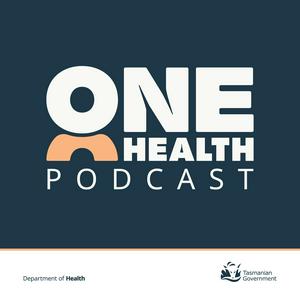
Get the free radio.net app
- Stations and podcasts to bookmark
- Stream via Wi-Fi or Bluetooth
- Supports Carplay & Android Auto
- Many other app features
Get the free radio.net app
- Stations and podcasts to bookmark
- Stream via Wi-Fi or Bluetooth
- Supports Carplay & Android Auto
- Many other app features


One Health Podcast
Scan code,
download the app,
start listening.
download the app,
start listening.


